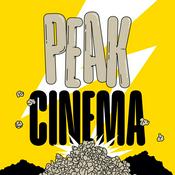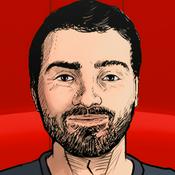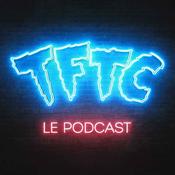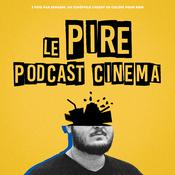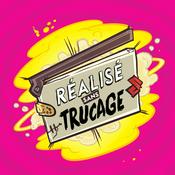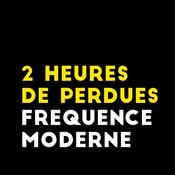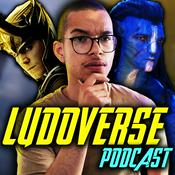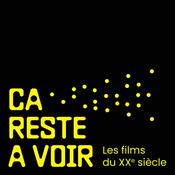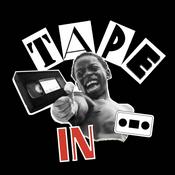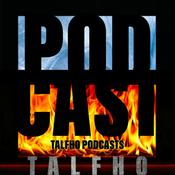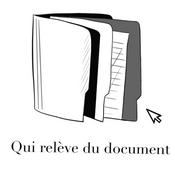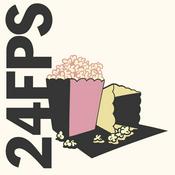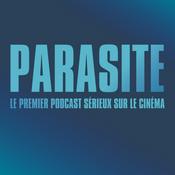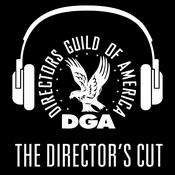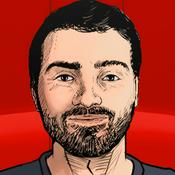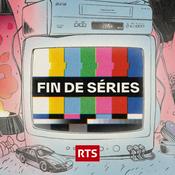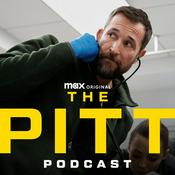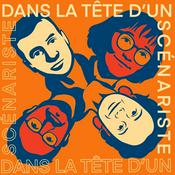149 épisodes

142 - New Mike Hodges Book - By Jon Spira
23/12/2025 | 43 min
Jon's Kickstarter LinkSummaryIn this conversation, Jon Spira discusses his new book 'I'll Settle for Nothingness: Conversations with Mike Hodges', detailing the genesis of the book, his friendship with the legendary filmmaker, and the exploration of Hodges' versatile career. The discussion covers many things including the making of 'Morons from Outer Space', the challenges of unproduced films, and the emotional journey of writing the book. Spira also shares insights into Hodges' legacy, his experiences with the BFI, and the Kickstarter campaign for the book's publication.TakeawaysThe book is a collection of conversations with Mike Hodges.Jon Spira's friendship with Hodges developed through their shared love of cinema.'Morons from Outer Space' is a film that has gained a cult following despite its initial failure.Hodges was a versatile filmmaker, working across various genres.The Terminal Man is a significant film that was poorly marketed and overlooked.Hodges had many unproduced films that reflect his creative vision.The BFI is preserving Hodges' legacy through his film archive.Spira aims to honor Hodges' memory through this book.The emotional journey of writing the book was profound for Spira.The Kickstarter campaign is a way to celebrate Hodges' work and legacy. This podcast is completely independent and made possible by listener support. If you’d like to help me keep making these episodes, you can join my Patreon community here: https://patreon.com/jamiebenning Watch more on YouTube:Check out the Filmumentaries YouTube channel for behind-the-scenes clips and extra content: https://youtube.com/filmumentariesAll my links

141 - Rob Spera - Film/TV Director’s Field Manual
23/12/2025 | 50 min
Rob Spera is a film and television director, educator, and the author of Film/TV Director’s Field Manual: 70 Maxims to Change Your Filmmaking. With decades of experience directing features, episodic television, and theatre, Rob brings a deeply practical, human-centred approach to directing and leadership. In this conversation, we discuss:Why Rob describes his book as an “anti-textbook”The idea that the camera’s job is to photograph subtextBuilding non-redundant frames that invite the audience to participateWhy kindness and psychological safety are essential creative toolsLetting go of control and empowering collaboratorsWhat “write what you know” really meansHow directors can practise their craft between jobsFilm/TV Director’s Field Manual – available via Amazon and Rob’s websiteHAPPY HOLIDAYS!This podcast is completely independent and made possible by listener support. If you’d like to help me keep making these episodes, you can join my Patreon community here: https://patreon.com/jamiebenning Watch more on YouTube:Check out the Filmumentaries YouTube channel for behind-the-scenes clips and extra content: https://youtube.com/filmumentariesAll my links

140 - Lucas Wars - With Laurent Hopman and Renaud Roche
09/12/2025 | 57 min
In this episode of The Filmumentaries Podcast, I’m joined by Laurent Hopman and Renaud Roche, the writer and artist behind the acclaimed graphic novel Lucas Wars, which tells the behind-the-scenes story of the making of Star Wars from a deeply personal, human perspective. Laurent shares his background as an entertainment journalist and how years of research, interviews, books and documentaries fed into the script. Renaud talks about coming from a traditional animation and storyboarding background, studying at Gobelins in Paris, and how cinematic visual language shaped the way he approached the book’s artwork. We discuss:Why the emotional journey of George Lucas became the heart of the storyHow the pair condensed vast amounts of historical research into a tightly structured graphic novelThe challenge of visually dramatising meetings, offices and creative conflictThe relationship between Lucas and Spielberg, and how it shapes both volume one and the upcoming sequelThe meaning behind the iconic twin suns coverVisiting Skywalker Ranch and Lucasfilm after the book’s releaseBalancing historical accuracy with storytellingWhy Lucas Wars connected with readers beyond the core Star Wars fandomWe also talk about the upcoming second volume, which covers The Empire Strikes Back and Raiders of the Lost Ark, and how expanding into Spielberg’s world adds a new layer to the story. As always, if you enjoy the podcast and would like to support what I do, you can find me on Patreon, and the show is also available on YouTube if you prefer to watch the interviews. BUY IT HEREThis podcast is completely independent and made possible by listener support. If you’d like to help me keep making these episodes, you can join my Patreon community here: https://patreon.com/jamiebenning Watch more on YouTube:Check out the Filmumentaries YouTube channel for behind-the-scenes clips and extra content: https://youtube.com/filmumentariesAll my links

139 - Art Directing from Titanic to House of the Dragon with Dominic Masters
25/11/2025 | 1 h 9 min
In this episode of The Filmumentaries Podcast, I speak with art director and supervising art director Dominic Masters, whose decades-long career spans some of the biggest films and series of the last 40 years. He grew up around movie sets thanks to his father, the legendary production designer Tony Masters (2001: A Space Odyssey, Papillon, Dune), and started his own journey at 19 when he spent eight months in China on Tai-Pan — the first Western movie ever shot there. Dom talks about learning the foundational skills of drafting, the early struggles of finding work in the British film industry of the mid-80s, and the unique lifestyle of moving from production to production — that strange micro-community that forms on set, often in far-flung locations. We cover his experiences on Titanic working under James Cameron, the shift from physical sets to set extensions and digital workflows, the evolution of the art department, and how shows like House of the Dragon demand an enormous level of coordination, creativity and technical precision. We also talk about the British Film Designers Guild, the camaraderie that forms in the art department, and his personal creative outlets, photography and music, that keep him balanced between jobs. It’s a wide-ranging, honest conversation with someone who has seen the industry evolve from the studio backlots of the 1970s to enormous contemporary productions. Topics discussedGrowing up around film sets and learning from legendary designersHis first job on Tai-Pan in 1985 and the experience of shooting in ChinaThe hierarchy and craft of the art departmentCollaboration with directors, designers, construction and VFXWorking on Titanic and the extraordinary scale of the buildThe Harry Potter films, James Bond films, and shifting directorsThe intensity and scale of House of the DragonSurviving the freelance lifestyle and industry downturnsCreative outlets outside the jobGuest Dominic Masters – Art Director / Supervising Art DirectorSelected credits: House of the Dragon, Belfast, Wonder Woman, Now You See Me 2, Casino Royale, Harry Potter, Titanic, The World Is Not Enough, The Avengers.This podcast is completely independent and made possible by listener support. If you’d like to help me keep making these episodes, you can join my Patreon community here: https://patreon.com/jamiebenning Watch more on YouTube:Check out the Filmumentaries YouTube channel for behind-the-scenes clips and extra content: https://youtube.com/filmumentariesAll my links

138 - Jay Glennie on "The Making of Quentin Tarantino's 'Once Upon A Time ...In Hollywood"
11/11/2025 | 40 min
In this episode of The Filmumentaries Podcast I speak with author and film historian Jay Glennie about his new book, The Making of Quentin Tarantino’s Once Upon a Time ...In Hollywood. Jay has a real gift for pulling together people, memories and materials, and this book is packed with insight from the cast and crew, including Leonardo DiCaprio, Brad Pitt, Margot Robbie and Quentin himself.We get into how long Quentin carried the idea for the film, the script secrecy following The Hateful Eight leak, and the vital work of the ADs, casting team, DP, production designer and producers. Jay talks about the careful balancing act of handling contradictory memories, how he preserves the voices of the people he interviews, and how he approaches a project that is still fresh in everyone’s mind. We also look at what comes next in his ten book Tarantino series.Big thanks to Jay and to TITAN books.Buy Jay Glennie’s book - published by TITAN.This podcast is completely independent and made possible by listener support. If you’d like to help me keep making these episodes, you can join my Patreon community here: https://patreon.com/jamiebenning Watch more on YouTube:Check out the Filmumentaries YouTube channel for behind-the-scenes clips and extra content: https://youtube.com/filmumentariesAll my links
Plus de podcasts Télévision et cinéma
Podcasts tendance de Télévision et cinéma
À propos de The Filmumentaries Podcast
Écoutez The Filmumentaries Podcast, Calmos, le podcast ou d'autres podcasts du monde entier - avec l'app de radio.fr
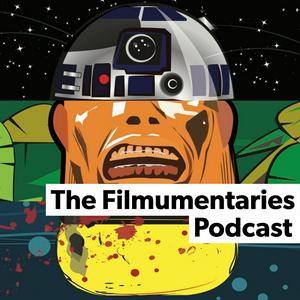
Obtenez l’app radio.fr gratuite
- Ajout de radios et podcasts en favoris
- Diffusion via Wi-Fi ou Bluetooth
- Carplay & Android Auto compatibles
- Et encore plus de fonctionnalités
Obtenez l’app radio.fr gratuite
- Ajout de radios et podcasts en favoris
- Diffusion via Wi-Fi ou Bluetooth
- Carplay & Android Auto compatibles
- Et encore plus de fonctionnalités


The Filmumentaries Podcast
Téléchargez l’app,
Écoutez.

